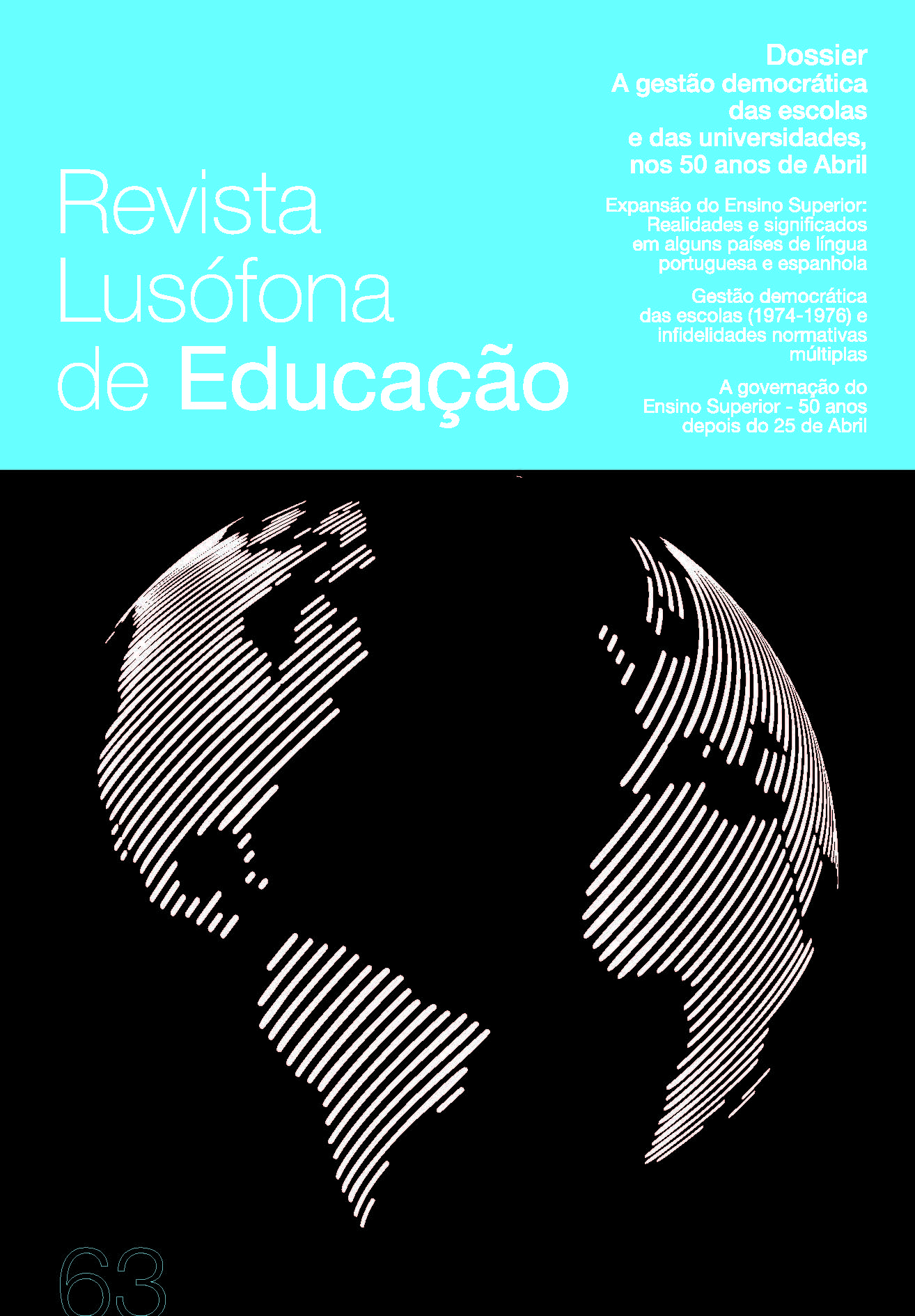Rationalities, Normative Production and Autonomic Challenges Post April 25th: the case of the Autonomous Region of Madeira
Abstract
After the 25th of April 1974, the democratization of management was the reason to justify several of the
reforms carried out at school without this having meant a slowdown in political and administrative centralization, visible in the excessive normative production that greatly contributes to limiting the true participation and autonomy of educational actors. In addition, there is the hegemonic presence of instrumental and mechanical rationalities in decisions shaped by neutrality, thereby impeding the critical, bold, and creative capacity that democracy includes. The democratization of the school, because understood as a project under construction, has to recognize as relevant a set of variables, whether they are those relating to the political agendas that guide the actions of leaders, the way of choosing their leaders, the distribution of power and the democratization of its organizational or management structures, as its development depends on them. The Autonomous Region of Madeira, as a privileged space for democratic management, as it reflects a reality that is influenced, but also influences, national educational policies,
allows us to recognize the advantage that comes from acting within an autonomous context. In this way, the possibility of adaptation considering the needs and particularities of Madeira expresses the importance of political and administrative autonomy for the realization of democracy.
Keywords: democratic management; rationalities; autonomy
Downloads
-
Authors retain copyright of their work, without any payment, and grant the journal the right of first publication. The work is simultaneously licensed under a Creative Commons Attribution 4.0 International License (CC BY 4.0), which allows others to share (copy and redistribute the material in any medium or format) and adapt (remix, transform, and build upon the material for any purpose, even commercially), provided that proper credit is given to the author(s) and the initial publication in RLE is acknowledged.
-
Authors are permitted to enter into separate, additional contractual arrangements for the non-exclusive distribution of the version of the work published in this journal (e.g., depositing it in an institutional repository or publishing it as a book chapter), provided that authorship and initial publication in RLE are acknowledged.
-
Authors are allowed and encouraged to post and disseminate their work online (e.g., in institutional repositories or on their personal websites), as this can increase the visibility and citation of the published work (see The Open Access Effect).








